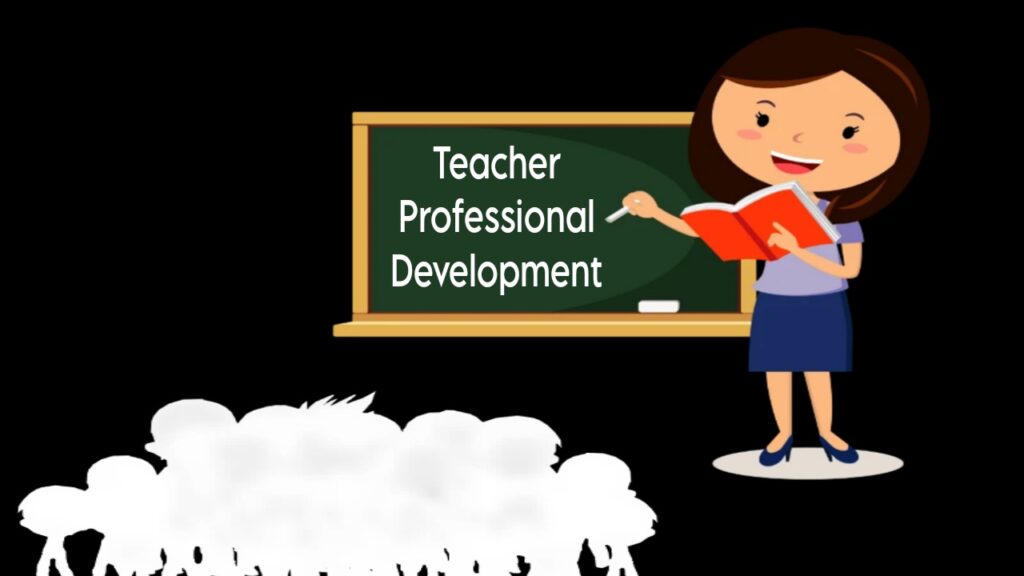Education is a complex process that involves not only the dissemination of knowledge but also the understanding of how individuals learn and process information. Educational psychology is a field of study that seeks to understand the cognitive, emotional, and social aspects of human learning and development, and how these factors influence educational outcomes.
Hello friends, I am Uzaif Kevin the author of your own website uzfkvn.com I hope you all are absolutely fine. I’m fine too. So without wasting time, in this Article I will tell you “What are educational psychology topics and what can we know advanced about it?”
Soo Lets Begin,
Table of Contents
What are educational psychology topics?
Educational psychologists use their expertise to inform instructional practices, curriculum development, and student assessment, with the ultimate goal of optimizing learning experiences for all learners.
In this comprehensive guide, we will explore various educational psychology topics, shedding light on key concepts, theories, and applications in the field.
1. Cognitive Development: Understanding How Students Learn
Cognitive development is a central topic in educational psychology, focusing on how students acquire, organize, and use information. Jean Piaget, a renowned psychologist, proposed a theory of cognitive development that has greatly influenced educational practices.
Piaget’s theory suggests that children go through distinct stages of cognitive development, each characterized by different ways of thinking and reasoning.
For instance, Piaget argued that during the sensorimotor stage (birth to 2 years), infants learn through sensory experiences and motor actions, while during the concrete operational stage (7 to 11 years), children begin to think logically about concrete objects and events.
Understanding cognitive development is crucial for educators as it helps them design instruction that aligns with students’ cognitive abilities and developmental stage. For example, teachers can use Piaget’s theory to develop age-appropriate activities and materials that match students’ cognitive abilities.

Additionally, educators can apply other theories of cognitive development, such as Lev Vygotsky’s sociocultural theory, which emphasizes the role of social interactions in cognitive development.
Vygotsky argued that social interactions with more knowledgeable individuals, such as teachers and peers, can scaffold students’ learning by providing support and guidance.
2. Motivation and Learning: Unlocking the Key to Student Engagement
Motivation plays a crucial role in learning, as it determines how much effort students put into their educational pursuits. Educational psychologists study various theories of motivation to understand how to foster motivation in students.
For instance, Abraham Maslow’s hierarchy of needs theory posits that individuals have a hierarchy of needs, ranging from basic physiological needs (e.g., hunger, thirst) to higher-order psychological needs (e.g., self-esteem, self-actualization).
Maslow argued that individuals are motivated to satisfy their lower-level needs before moving on to higher-level needs.
Educators can apply Maslow’s theory by considering students’ basic physiological needs, such as hunger and comfort, and creating a supportive learning environment that meets those needs.
Additionally, educators can use Maslow’s theory to tap into students’ higher-order psychological needs by providing opportunities for students to achieve a sense of competence, autonomy, and relatedness in their learning experiences.
For example, teachers can give students choices and autonomy in their assignments, encourage collaboration and peer interaction, and provide feedback that promotes a sense of competence and mastery.
Another prominent theory of motivation is self-determination theory, proposed by Edward Deci and Richard Ryan, which posits that individuals are motivated when their basic psychological needs for autonomy, competence, and relatedness are satisfied.
Self-determination theory suggests that intrinsic motivation, or the internal drive to engage in an activity for the sheer joy of it, is more effective for fostering long-term engagement and learning than extrinsic motivation, which involves rewards or punishments.
Educators can promote intrinsic motivation by designing learning tasks that tap into students’ interests, passions, and curiosity, and by providing opportunities for students to make choices and have a sense of autonomy in their learning.
3. Individual Differences: Addressing Diverse Learners’ Needs
Educational psychologists recognize that learners are diverse, with unique strengths, weaknesses, and backgrounds that influence
their learning experiences. Individual differences, such as cognitive abilities, learning styles, and cultural backgrounds, play a significant role in shaping students’ learning outcomes.
Understanding and addressing these differences is critical for educators to create inclusive and effective learning environments.
For instance, students with diverse cognitive abilities may require different instructional strategies. Educational psychologists study cognitive processes, such as attention, memory, and problem-solving, to understand how students process information and develop strategies to optimize learning.
For example, students with high working memory capacity may benefit from more complex and challenging tasks, while students with low working memory capacity may need additional support and scaffolding.
Similarly, students’ learning styles, such as visual, auditory, or kinesthetic, also impact their learning experiences. Educational psychologists study learning styles to understand how students prefer to receive and process information and design instructional strategies that cater to different learning styles.
For example, teachers can use visual aids, such as diagrams or videos, for visual learners, provide opportunities for discussion and verbal explanations for auditory learners, and incorporate hands-on activities for kinesthetic learners.
Furthermore, cultural backgrounds and experiences influence students’ beliefs, attitudes, and values towards education. Educational psychologists study cultural factors to understand how students from diverse backgrounds perceive and approach learning, and design instructional strategies that are culturally responsive.
For example, educators can incorporate culturally relevant materials and examples in the curriculum, promote inclusive classroom discussions that value diverse perspectives, and establish positive teacher-student relationships based on mutual respect and understanding.

4. Assessment and Evaluation: Measuring Learning Outcomes
Assessment and evaluation are critical components of the educational process, as they provide feedback on students’ learning outcomes and inform instructional decisions. Educational psychologists study various assessment methods and techniques to ensure that assessments are valid, reliable, and fair, and provide accurate information about students’ learning progress.
One commonly used assessment method is standardized testing, which involves administering tests with consistent procedures and scoring criteria to a large sample of students.
Educational psychologists develop and evaluate standardized tests to ensure that they measure what they intend to measure and provide meaningful information about students’ knowledge and skills.
However, standardized testing has been a topic of debate and controversy, as it may not fully capture students’ diverse abilities and may have biases that disadvantage certain groups of students.
Educational psychologists also study alternative assessment methods, such as performance assessments, portfolios, and self-assessment, which provide a more comprehensive and authentic measure of students’ learning outcomes.
For example, performance assessments, such as projects or presentations, allow students to demonstrate their knowledge and skills in real-world contexts, while portfolios allow students to showcase their best work over time.
Additionally, self-assessment encourages students to reflect on their learning progress and set goals for improvement, promoting metacognition and self-regulation skills.
Educators can use assessment and evaluation data to inform their instructional practices. For example, teachers can use assessment results to identify students’ strengths and weaknesses and provide targeted feedback and interventions.
Educators can also use assessment data to evaluate the effectiveness of instructional strategies and make adjustments to optimize learning outcomes. Moreover, assessment and evaluation data can inform curriculum development and policy decisions at the school or district level, ensuring that educational practices are evidence-based and aligned with students’ needs.
5. Classroom Management: Creating a Positive Learning Environment
Creating a positive learning environment is crucial for promoting student engagement, motivation, and learning outcomes. Classroom management, a topic studied in educational psychology, involves establishing and maintaining a safe, supportive, and inclusive classroom environment that fosters optimal learning experiences.
Educational psychologists study various strategies and techniques for effective classroom management, such as establishing clear expectations and rules, promoting positive teacher-student relationships, and implementing behavior management strategies.
For example, educators can create a set of clear and consistent rules that align with the values and expectations of the classroom, and involve students in the process to enhance their ownership and accountability. Setting up routines and procedures, such as transitions, group work, and materials management, can also help create a well-organized and efficient classroom environment.
positive teacher-student relationships are critical for classroom management. Educational psychologists emphasize the importance of building positive and respectful relationships between teachers and students.
Teachers can create a warm and inclusive classroom climate by showing empathy, demonstrating care and concern for students’ well-being, and showing interest in their thoughts, ideas, and experiences.
Positive teacher-student relationships foster a sense of belonging and
connectedness, which promotes students’ motivation, engagement, and overall well-being.
Behavior management strategies are also an essential component of classroom management. Educational psychologists study techniques, such as reinforcement, punishment, and self-regulation, to effectively manage student behavior and promote a positive classroom environment.
For example, educators can use positive reinforcement, such as praise or rewards, to encourage desirable behaviors, and implement consequences, such as time-out or loss of privileges, for undesirable behaviors.
Moreover, teaching students self-regulation skills, such as self-awareness, self-control, and problem-solving, empowers them to manage their own behavior and make responsible choices.
6. Special Education: Addressing Diverse Needs
Inclusive education is a fundamental principle of modern education, and special education is a critical field studied in educational psychology. Special education focuses on understanding and addressing the diverse needs of students with disabilities, including cognitive, emotional, behavioral, and physical disabilities.
Educational psychologists study the characteristics of different disabilities and the impact on students’ learning and development. They also develop and evaluate strategies and interventions to support students with disabilities in the classroom.
For example, educators can use differentiated instruction, assistive technologies, and accommodations, such as modified assignments or extra time, to meet the unique needs of students with disabilities.
Additionally, collaboration among teachers, special education professionals, and other stakeholders is crucial for effective inclusion, and educational psychologists study effective collaboration strategies and models to promote successful inclusive practices.
Educational psychologists emphasize the importance of promoting positive attitudes and inclusive mindsets among all students towards their peers with disabilities. Creating a culture of acceptance, respect, and understanding in the classroom can foster inclusive attitudes and reduce stigma and discrimination.
Educators can engage students in activities that promote empathy, tolerance, and appreciation for diversity, and provide opportunities for students to interact and collaborate with their peers with disabilities.

7. Motivation and Engagement: Fostering a Love for Learning
Motivation and engagement are critical factors in student learning and achievement. Educational psychologists study various motivational theories and strategies to understand how students become engaged, motivated, and invested in their learning experiences.
One prominent theory in educational psychology is the self-determination theory, which suggests that students are motivated when their basic psychological needs for autonomy, competence, and relatedness are met.
Autonomy refers to students’ sense of control and choice in their learning, competence relates to students’ sense of mastery and success, and relatedness involves students’ sense of connection and belongingness with others.
Educational psychologists study how to create learning environments that foster students’ autonomy, competence, and relatedness to promote intrinsic motivation and engagement.
Educators can also use various strategies to enhance student motivation and engagement. For example, providing students with challenging and meaningful tasks that align with their interests and goals can promote engagement and motivation.
Giving students choices and opportunities for decision-making, such as selecting topics or projects, can also enhance their sense of autonomy and ownership in the learning process. Additionally, providing feedback that is timely, specific, and constructive can promote students’ sense of competence and self-efficacy, and encourage them to continue their efforts towards learning.
Incorporating technology and multimedia into instruction can also promote student engagement and motivation. Educational psychologists study the use of technology in education and how it can enhance student motivation and engagement.
For instance, using interactive educational software, online simulations, and multimedia resources can make learning more engaging and interactive, especially for digital-native students who are accustomed to using technology in their daily lives.
Additionally, incorporating gamification elements, such as points, badges, and leaderboards, can tap into students’ competitive nature and motivate them to actively participate in their learning.
Furthermore, educational psychologists also study the role of emotions in motivation and engagement. Emotions play a significant role in students’ motivation to learn and engage in the classroom.
Positive emotions, such as interest, excitement, and joy, can foster motivation and engagement, while negative emotions, such as anxiety, frustration, and boredom, can hinder learning and engagement. Educators can create a positive emotional climate in the classroom by using humor, storytelling, and personal anecdotes, and by showing genuine interest in students’ thoughts and feelings.
Moreover, helping students develop emotional regulation skills, such as identifying and managing their emotions, can also contribute to their motivation and engagement in the learning process.
8. Assessment and Evaluation: Measuring Learning Outcomes
Assessment and evaluation are critical aspects of the educational process. Educational psychologists study various methods of assessment and evaluation to measure student learning outcomes accurately and inform instructional decision-making.
Traditional forms of assessment, such as tests and exams, are widely used in education. However, educational psychologists advocate for a broader approach to assessment that includes formative assessment, performance assessment, and authentic assessment.
Formative assessment involves ongoing monitoring of students’ progress and provides feedback to guide instruction. Performance assessment requires students to demonstrate their knowledge and skills in authentic tasks, such as projects, presentations, and performances.
Authentic assessment involves evaluating students’ ability to apply their knowledge and skills in real-world contexts. These alternative forms of assessment provide a more comprehensive and meaningful picture of students’ learning and performance.
Assessing cognitive outcomes, educational psychologists also emphasize the importance of assessing non-cognitive outcomes, such as social-emotional skills, motivation, and metacognition. Assessing non-cognitive outcomes can provide valuable insights into students’ holistic development and well-being, and inform instructional strategies to support their growth in these areas.
Educational psychologists also study the principles of fairness, validity, and reliability in assessment and evaluation. Fairness involves ensuring that assessments are free from bias and discrimination and that all students have an equal opportunity to demonstrate their knowledge and skills.
Validity refers to the extent to which assessments measure what they are intended to measure, and reliability involves the consistency and stability of assessment results. Educational psychologists provide guidance on how to design, administer, and interpret assessments that are fair, valid, and reliable.
9. Cultural and Contextual Factors: Considering Diversity
Education is a diverse and dynamic field, and cultural and contextual factors play a crucial role in students’ learning and development. Educational psychologists study how cultural and contextual factors influence teaching and learning processes and develop strategies to promote inclusive practices in diverse educational settings.
Cultural diversity in the classroom can include differences in language, race, ethnicity, religion, socio-economic status, and other aspects of students’ identity. Educational psychologists emphasize the importance of culturally responsive teaching, which involves recognizing, valuing, and incorporating students’ cultural backgrounds into the instructional process.
This can be achieved by using culturally relevant instructional materials, incorporating diverse perspectives and experiences in the curriculum, and adapting instructional strategies to meet the diverse needs of students.
Contextual factors, such as the community, school, and classroom environment, also impact students’ learning and development. For example, students from low-income communities may face additional challenges, such as limited access to resources and opportunities, which can affect their educational outcomes.
Educational psychologists study how contextual factors influence students’ learning and development and develop strategies to address these challenges. This can include creating a positive and inclusive classroom climate, building strong relationships with students, and collaborating with families and communities to support students’ learning and development.
Educational psychologists also explore the intersectionality of cultural and contextual factors, recognizing that students may belong to multiple cultural or identity groups that intersect and influence their educational experiences.
For example, a student may identify as both an English language learner and a member of a marginalized racial or ethnic group, which may impact their learning and engagement in the classroom. Educational psychologists strive to understand and address the unique challenges and strengths that students from diverse cultural and contextual backgrounds bring to the educational setting.

10. Teacher Professional Development: Enhancing Instructional Practices
Teacher professional development is a critical component of improving instructional practices and enhancing student learning outcomes. Educational psychologists study effective methods of professional development to support teachers in their continuous growth as educators.
Research shows that high-quality professional development can have a positive impact on teacher knowledge, skills, and attitudes, which in turn can lead to improved student outcomes. Educational psychologists advocate for ongoing, job-embedded professional development that is aligned with teachers’ needs and focuses on evidence-based instructional practices.
This can include workshops, seminars, coaching, mentoring, and collaborative learning opportunities that provide teachers with opportunities to reflect on their practice, learn new strategies, and apply them in their classrooms.
Egrowth mindset and enhance their instructional practices.
Educational psychologists also recognize the importance of addressing the social and emotional well-being of teachers in professional development. Teacher burnout, stress, and job dissatisfaction can impact their ability to effectively teach and support student learning.
Therefore, professional development programs that address teacher well-being, self-care, and work-life balance are also emphasized by educational psychologists.
Conclusion
Educational psychology encompasses a wide range of topics that are essential to understanding how students learn, develop, and thrive in educational settings. From cognitive processes and motivation to assessment and evaluation, cultural and contextual factors, and teacher professional development, educational psychology provides valuable insights and evidence-based strategies for improving educational practices and enhancing student outcomes.
As education continues to evolve and face new challenges, educational psychologists play a crucial role in conducting research, applying theory to practice, and promoting effective teaching and learning strategies.
By understanding the complex interactions between students, teachers, and the educational environment, educational psychologists contribute to creating inclusive, engaging, and effective learning environments that foster the growth and development of all students.
In conclusion, educational psychology is a multidisciplinary field that has a significant impact on education and student outcomes.
Educators, policymakers, and other stakeholders can benefit from the insights and evidence-based practices offered by educational psychologists to enhance instructional practices, promote student motivation and engagement, improve assessment and evaluation methods, address cultural and contextual factors, and support teacher professional development.
By integrating the principles and findings of educational psychology into educational practices, we can create a more effective and inclusive educational system that nurtures the growth and development of all learners.
More Read






